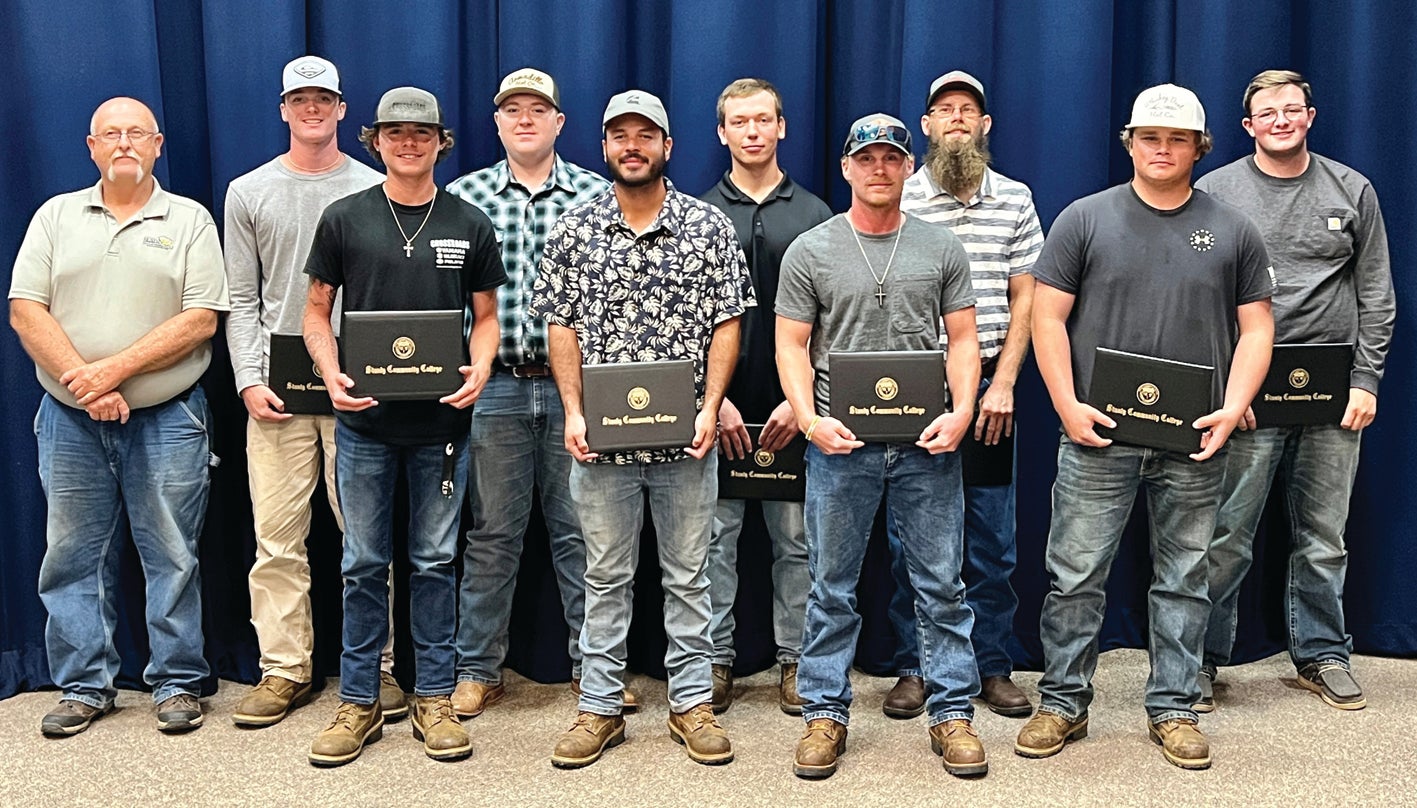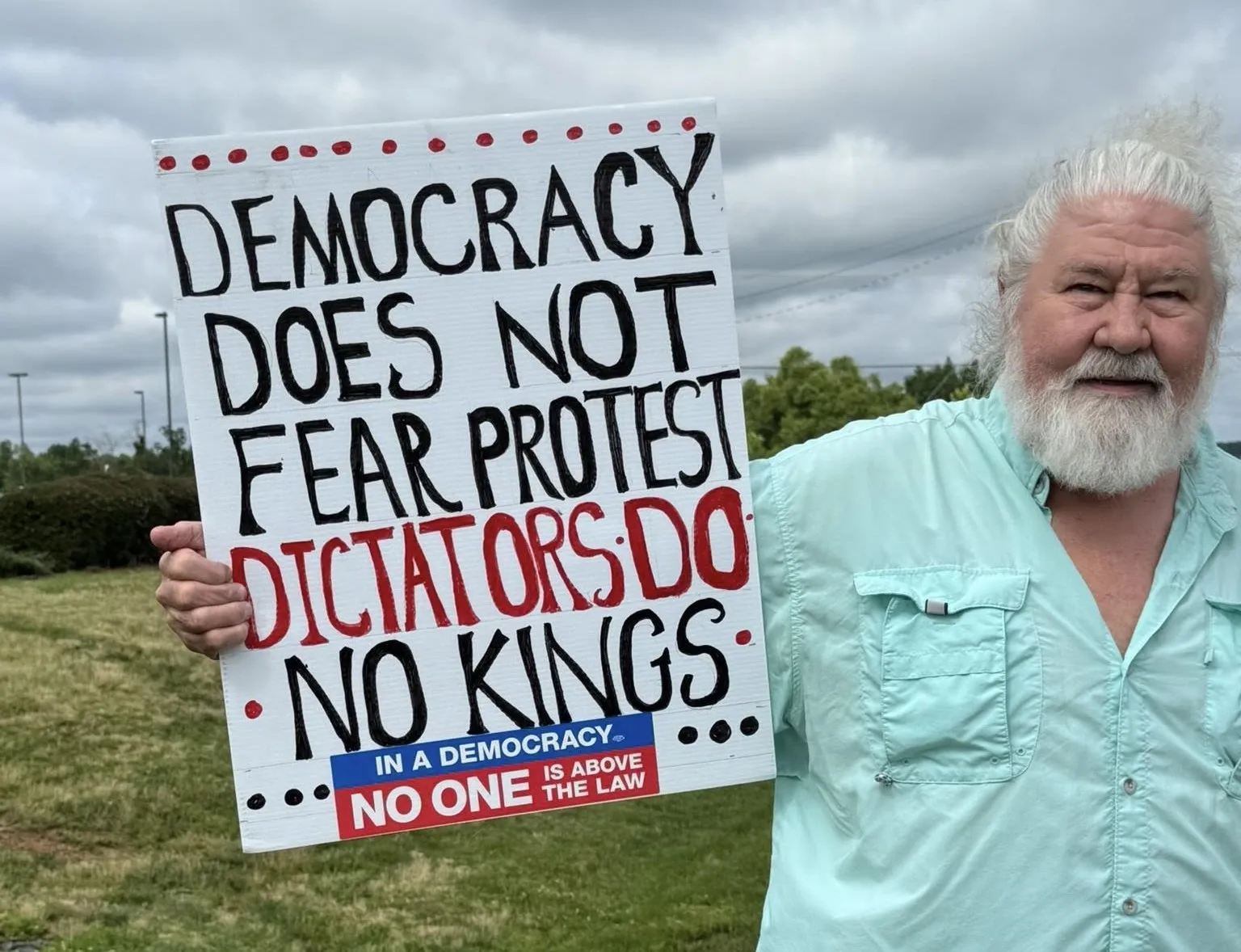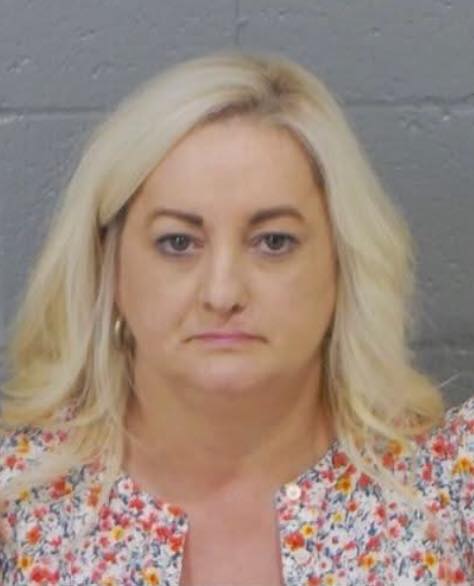SCC students complete electrical lineworker training
Published 3:25 pm Tuesday, September 6, 2022

- Graduates of Stanly Community College’s Electrical Lineworker program include, from left, front row: Travis Burris (Stanly County), Giovanni Vallazza (Gaston), Chayce Aldridge (Alamance) and Aaron Barrett (Randolph); back row: program head Ricky Carpenter, Caleb Eudy (Stanly), Dawson Seawell (Moore), Lincoln Pritchard (Kentucky), Daniel Hurley (Stanly), and Trey Williams (Randolph).
|
Getting your Trinity Audio player ready...
|
Students at Stanly Community College (SCC) recently completed their 12-week training program for the Electrical Lineworker certificate.
The Electrical Lineworker program instructs students basic elements of electricity, overhead pole and electrical line construction, safety codes and applications, electric power systems, as well as transformer and meter installations.
During the graduation ceremony, SCC President Dr. John Enamait welcomed the graduates and thanked the special guests for attending.
He encouraged the students to continue to learn, work hard and to stay safe in their new careers. He also reminded them they were now SCC alumni and that they would always be part of the college’s family.
Devin Baucom, associate vice president, advanced manufacturing, industry, technology, and trades, recognized the faculty and staff who helped the graduates complete their training.
Jeff Parsons, SCC vice president of academic affairs and chief academic officer, acknowledged the scholarship funding that made it possible for many of the students to be able to take the Electrical Lineworker program.
Seven students received some form of scholarships, with $9,750 awarded in scholarship funding.
Guest speakers Randy Welch, district manager of government and community relations, Duke Energy, and Brian Williams, project manager, Pike Electric, spoke to the graduates about their career and safety.
Karen Kiker, continuing education coordinator and faculty associate gave the invocation, and was instrumental in preparing the graduation ceremony for the students.
Before conferring diplomas, Program Head Ricky Carpenter shared some words of encouragement and stressed safety above all else as the men entered the workforce.
This marked the college’s tenth class of electrical lineworkers, resulting in a total of 99 graduates from the program.
Electrical utility lineworkers and technicians will typically do the following: drive work vehicles to job sites; install, maintain, or repair the power lines that move and distribute electricity; identify defective devices, circuit breakers, fuses, voltage regulators, transformers, and switches; inspect and test power lines and auxiliary equipment.
Additionally, they will string power lines between poles and buildings; climb poles and use truck-mounted buckets to get to equipment; operate power equipment when installing and repairing poles, and lines; and follow safety standards and procedures.
Training also includes OHSA 10-Hour Construction Certificate and CPR/First Aid Training Certificate, among other topics.





